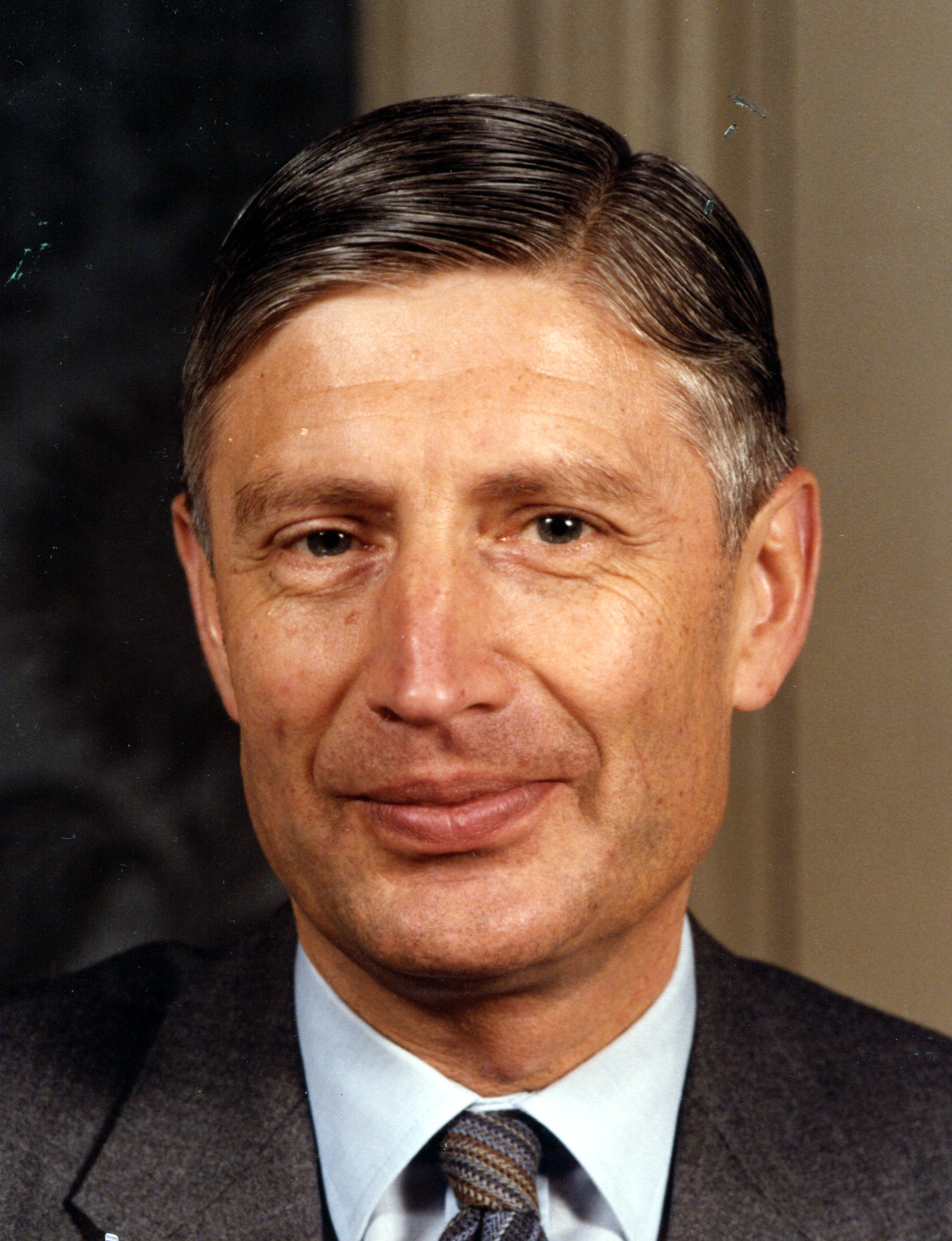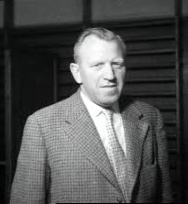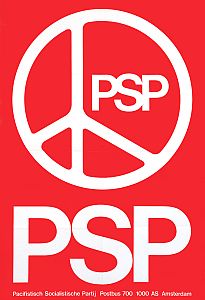|
1981 Dutch General Election
General elections were held in the Netherlands on 26 May 1981.Dieter Nohlen & Philip Stöver (2010) ''Elections in Europe: A data handbook'', p1396 The Christian Democratic Appeal (CDA) emerged as the largest party, winning 48 of the 150 seats in the House of Representatives.Nohlen & Stöver, p1414 The incumbent Christian Democratic Appeal-People's Party for Freedom and Democracy coalition lost its overall majority leading to a new coalition being formed between the CDA, the Labour Party (PvdA) and Democrats 66, with the CDA's Dries van Agt continuing as Prime Minister. However due to disagreements between the CDA and PvdA on government spending the coalition collapsed after just a year, leading to fresh elections. Results By province References {{Dutch general elections 1981 Events January * January 1 ** Greece enters the European Economic Community, predecessor of the European Union. ** Palau becomes a self-governing territory. * January 10 – Salvador ... [...More Info...] [...Related Items...] OR: [Wikipedia] [Google] [Baidu] |
1977 Dutch General Election
General elections were held in the Netherlands on 25 May 1977.Dieter Nohlen & Philip Stöver (2010) ''Elections in Europe: A data handbook'', p1396 The Labour Party remained the largest party, winning 53 of the 150 seats in the House of Representatives.Nohlen & Stöver, p1414 Following the election, it took 208 days of negotiations to form a new government. This was a European record for longest government formation that stood until after the 2010 Belgian general election. The Christian Democratic Appeal was formed by the Anti-Revolutionary Party (ARP), Christian Historical Union (CHU) and the Catholic People's Party (KVP) in 1976. The first joint party leader was a member of the KVP, Dries van Agt. Eventually a coalition was formed between the Christian Democratic Appeal and the People's Party for Freedom and Democracy with Dries van Agt as Prime Minister. Results By province References {{Dutch general elections 1977 Events January * January 8 – Thre ... [...More Info...] [...Related Items...] OR: [Wikipedia] [Google] [Baidu] |
Dieter Nohlen
Dieter Nohlen (born 6 November 1939) is a German academic and political scientist. He currently holds the position of Emeritus Professor of Political Science in the Faculty of Economic and Social Sciences of the University of Heidelberg. An expert on electoral systems and political development, he has published several books. IDEA Bibliography Books published by Nohlen include: *''Electoral systems of the world'' (in German, 1978) *''Lexicon of politics'' (seven volumes) *''Elections and Electoral Systems'' (1996) *''Elections in Africa: A Data Handbook'' (1999 with Michael Krennerich and Bernhard Thibaut) *''Elections in Asia and the Pacific: A Data Handbook'' (2001 with and Christof Hartmann) ** ''Volume 2: South East Asia, East Asia, and the Pacific'' (2002), *''Vo ...[...More Info...] [...Related Items...] OR: [Wikipedia] [Google] [Baidu] |
Democratic Socialists '70
The Democratic Socialists '70 ( nl, Democratisch Socialisten '70, DS'70) was a social-democratic political party in the Netherlands. History DS'70 was founded on 4 April 1970 as the result of a split from the Labour Party (PvdA). In June 1970, Frans Goedhart and Wybrand Schuitemaker, two members of the House of Representatives, left the PvdA and became members of DS'70 because of the anti-American position the PvdA had taken in the Vietnam War. They had previously been frustrated by its cooperation with other left-wing parties such as the Pacifist Socialist Party and its left-wing fiscal policy. In its declaration of principles (''Beginselverklaring''), DS'70 argued that whilst the People's Party for Freedom and Democracy (VVD) lacked the comprehension of the necessity of social and economic reforms, the PvdA had acquired "anarchist" and unrealistic pacifist aspirations. In the 1971 general election, the party won eight seats in parliament. After the elections, the party coope ... [...More Info...] [...Related Items...] OR: [Wikipedia] [Google] [Baidu] |
Reformed Political League
The Reformed Political LeagueTranslation used by Andeweg and Irwin in ''Governance and Politics of the Netherlands'' (2002: 45) ( nl, Gereformeerd Politiek Verbond, GPV) was an orthodox Protestant political party in the Netherlands. The GPV is one of the predecessors of the Christian Union. The party was a testimonial party. History 1948–1963 The GPV was founded in 1948 as the result of a theological conflict within the Reformed Churches in the Netherlands, which led to the creation of the Reformed Churches in the Netherlands (Liberated). In 1944 a group of orthodox Protestants left the Reformed Church, because they disagreed with Abraham Kuyper's view that God had created multiple branches of Christianity (Catholicism, Protestantism etc.), each with their own sphere. In 1948 adherents of the Reformed Church in the Netherlands (Liberated) left the Anti-Revolutionary Party, the party linked to the Reformed Church in the Netherlands. On 1 April 1948 they founded the GPV during ... [...More Info...] [...Related Items...] OR: [Wikipedia] [Google] [Baidu] |
Reformatory Political Federation
The Reformatory Political Federation ( nl, Reformatorische Politieke Federatie; RPF) was a minor Protestant Christian political party in the Netherlands. History The RPF was founded in 1975 by three groups of orthodox Christians. The first group were members of the Protestant-Christian Anti-Revolutionary Party, secondly the National Evangelical Union, a small party which had earlier left the ARP, and several independent electoral committees. The founders opposed the formation of the Christian Democratic Appeal, because the Protestant ARP and Christian Historical Union would join the Catholic People's Party. During the period of pillarisation, the Catholics and Protestants had lived in a form of cold war. The RPF sought to unite all other orthodox Protestant Christian parties, namely the Reformed Political League (GPV) and the Reformed Political Party (SGP). In the subsequent 1977 elections the RPF was unable to win any seats. In 1981 it won two seats in House of Representa ... [...More Info...] [...Related Items...] OR: [Wikipedia] [Google] [Baidu] |
Political Party Of Radicals
The Political Party of Radicals ( nl, Politieke Partij Radikalen, PPR) was a Christian left, progressive Christian and green politics, green list of political parties in the Netherlands, political party in the Netherlands. The PPR played a relatively small role in Dutch politics and merged with other left-wing parties to form GreenLeft (Dutch: GroenLinks) in 1991. History Before 1968 The foundation of the PPR is linked to formation of the De Jong cabinet and the Christian Democratic Appeal (CDA). After the 1967 Dutch general election, 1967 general election, it became clear that a centre-right politics, centre-right cabinet would be formed by the Anti-Revolutionary Party (ARP) and Christian Historical Union (CHU), the Catholic People's Party (KVP) and the People's Party for Freedom and Democracy (VVD). Progressivism, Progressive forces within the KVP and ARP had hoped for the formation of a centre-left cabinet with the Labour Party (Netherlands), Labour Party (PvdA) without the par ... [...More Info...] [...Related Items...] OR: [Wikipedia] [Google] [Baidu] |
Reformed Political Party
The Reformed Political Party ( nl, Staatkundig Gereformeerde Partij, SGP) is a conservative CalvinistThese sources describe the SGP as a Calvinist political party: * * * * * political party in the Netherlands. The term ''Reformed'' is not a reference to political reform but is a synonym for Calvinism—a major branch of Protestantism. The SGP is the oldest political party in the Netherlands existing in its present form, and has been in opposition for its entire existence. Since 1925, it has won between 1.6% and 2.5% of the votes in general elections. Owing to its orthodox political ideals and its traditional role in the opposition, the party has been called a testimonial party. Since the 2012 Dutch general election, general election of 2012, it has held 3 of the 150 seats of the House of Representatives (Netherlands), House of Representatives. Party history Foundation The SGP was founded on 24 April 1918, by several conservative members of the Protestant Anti-Revolutionary Party ( ... [...More Info...] [...Related Items...] OR: [Wikipedia] [Google] [Baidu] |
Communist Party Of The Netherlands
The Communist Party of the Netherlands ( nl, Communistische Partij Nederland, , CPN) was a Dutch communist party. The party was founded in 1909 as the Social-Democratic Party (SDP) and merged with the Pacifist Socialist Party, the Political Party of Radicals and the Evangelical People's Party in 1991, forming the centre-left GreenLeft. Members opposed to the merger founded the New Communist Party of the Netherlands. History Foundation In 1907 Jan Ceton, Willem van Ravesteyn and David Wijnkoop founded (The Tribune), a magazine in which they criticized the leadership of the Social Democratic Workers' Party (SDAP) of which they were members. They maintained orthodox marxist views and expected a proletarian revolution. They opposed the leadership of the SDAP, who were more oriented towards more a revisionist ideology and a parliamentary and reformist political strategy. At a party congress in Deventer held on February 14, 1909 the leadership of the SDAP demanded t ... [...More Info...] [...Related Items...] OR: [Wikipedia] [Google] [Baidu] |
Pacifist Socialist Party
The Pacifist Socialist Party ( nl, Pacifistisch Socialistische Partij, PSP) was a democratic socialist Dutch socialist political party. The PSP played a small role in Dutch politics. It is one of the predecessors of the GreenLeft. Party history Before 1957 In 1955 a group of "politically homeless" activists had formed. The group mainly consisted of former members of the Labour Party (PvdA) and the Communist Party of the Netherlands (CPN). They had left the PvdA over the military intervention against the Indonesian independence movement and the Labour party's support for NATO. Many of them had a background in the orthodox Marxist wing of the Social Democratic Workers' Party or the Christian Democratic Union (CDU), which had merged into the PvdA. The former members of the CPN had left their party over the Stalinist course of the CPN. There was also a group of these politically homeless that had never been members of parties, while others had been member of pre-war parties such a ... [...More Info...] [...Related Items...] OR: [Wikipedia] [Google] [Baidu] |
1981 Dutch General Election
General elections were held in the Netherlands on 26 May 1981.Dieter Nohlen & Philip Stöver (2010) ''Elections in Europe: A data handbook'', p1396 The Christian Democratic Appeal (CDA) emerged as the largest party, winning 48 of the 150 seats in the House of Representatives.Nohlen & Stöver, p1414 The incumbent Christian Democratic Appeal-People's Party for Freedom and Democracy coalition lost its overall majority leading to a new coalition being formed between the CDA, the Labour Party (PvdA) and Democrats 66, with the CDA's Dries van Agt continuing as Prime Minister. However due to disagreements between the CDA and PvdA on government spending the coalition collapsed after just a year, leading to fresh elections. Results By province References {{Dutch general elections 1981 Events January * January 1 ** Greece enters the European Economic Community, predecessor of the European Union. ** Palau becomes a self-governing territory. * January 10 – Salvador ... [...More Info...] [...Related Items...] OR: [Wikipedia] [Google] [Baidu] |
Democrats 66
Democrats 66 (; abbreviated D66, ) is a social liberal political party in the Netherlands, which positions itself in the centre of the political spectrum. It is a member of the Liberal International (LI) and the Alliance of Liberals and Democrats for Europe (ALDE). The name of the party refers to its year of foundation, 1966. Initially, its main objective had been to democratise the Dutch political system, but it developed a broader social liberal ideology over time. In the 1967 general election, the party won 7 out of 150 seats in the House of Representatives. No new party had ever gained that many seats before. The party was in government from 1973 to 1977, 1981 to 1982, 1994 to 2002, 2003 to 2006 and 2017 to 2021. It currently holds 24 seats in the House of Representatives, 7 seats in the Senate and 2 seats in the European Parliament. D66 is especially popular among people who hold a university degree, and its voters are mostly concentrated in larger cities and in ... [...More Info...] [...Related Items...] OR: [Wikipedia] [Google] [Baidu] |
Labour Party (Netherlands)
The Labour Party ( nl, Partij van de Arbeid, , abbreviated as ''PvdA'', or ''P van de A'', ) is a social-democratic political party in the Netherlands. The party was founded in 1946 as a merger of the Social Democratic Workers' Party, the Free-thinking Democratic League and the Christian Democratic Union. Prime Ministers from the Labour Party have been Willem Drees (1948–1958), Joop den Uyl (1973–1977) and Wim Kok (1994–2002). From 2012 to 2017, the PvdA formed the second-largest party in parliament and was the junior partner in the Second Rutte cabinet with the People's Party for Freedom and Democracy. The Leader of the Labour Party is Attje Kuiken. The party fell to nine seats in the House of Representatives at the 2017 general election, making it the seventh-largest faction in the chamber—its worst showing ever. However, the party rebounded with a first-place finish in the 2019 European Parliament election in the Netherlands, winning 6 of 26 seats, wit ... [...More Info...] [...Related Items...] OR: [Wikipedia] [Google] [Baidu] |





